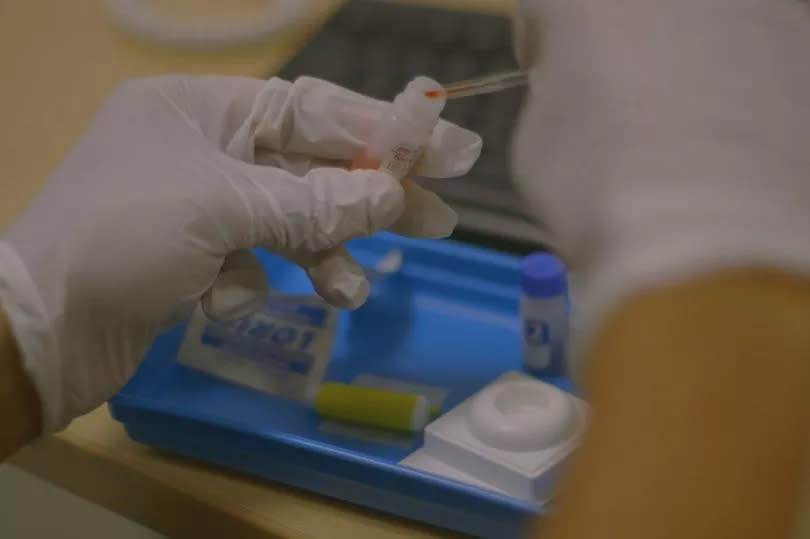A record number of people were diagnosed with gonorrhea last year – as doctors warn sexual health services are at a “critical point” amid funding cuts and growing demand. There were more cases of this ancient sexually transmitted infection in England last year than at any time since records began more than 100 years ago, according to the latest NHS data.
Gonorrhea infections – referred to in the Bible and early Greek and Roman writings – increased by 7.5% from 79,268 diagnoses in 2022 to 85,223 in 2023. Cases have been rising for the last decade, before falling during the lockdown and isolation of the pandemic , only to return to record highs.
Gonorrhea diagnoses are now three times what they were in 2012. At the same time, the infection rate – used to measure the risk of contracting a disease – has tripled from 50.3 infections per 100,000 of the population in 2012 , to 149 per 100,000 last year. That equates to around one in 670 people in England being diagnosed with gonorrhoea.
READ: UK tourists bringing back disease that could kill one in ten as Foreign Office issues warning
But in some parts of the country, particularly London, the risk is much greater. In Lambeth, there were 4,101 diagnoses of gonorrhea last year. Compared to the population size that adds up to 1,295 infections per 100,000 people – or equivalent to about one in every 77 people catching gonorrhoea.
All of the 15 areas with the highest infection rates were in London. Southwark (983 per 100,000) followed Lambeth, then Hackney (867 per 100,000). Outside the capital, the risk of contracting gonorrhea was highest in Liverpool (302 infections per 100,000 people) and Brighton (292 per 100,000).
You can see the cases and rate of gonorrhea where you live, and how that has changed over the last decade, using our interactive map.
It comes as the British Association for Sexual Health and HIV (BASHH) warns that there is growing demand for care in sexual health services “against a challenging backdrop of funding cuts and workforce pressures”. The number of consultations carried out by sexual health services in England reached a record 4.61 million in 2023, a 5% increase on the previous year, and a 44% rise from 2019, the earliest year records are available.
BASHH has now called on the next government to implement a national sexual health strategy to address challenges and deliver “quality care that meets rising and changing demand, and eliminates health inequalities “. BASHH President, Professor Matt Phillips, said: “We are at a critical point in ensuring the viability of sexual health services.
“The worrying trajectory of new STI diagnoses is a worrying sign that the unmet needs of those in need of sexual health care are increasing, particularly those in minority communities and those who would prefer the services of a with a person, and it emphasizes the need for a service that has been expected for a long time. a much-needed strategy for sexual health.
“From recruitment challenges to public health funding to ensuring every clinic is supported by the right experts, the next government has an opportunity to turn the tide and address these barriers to ensure timely access everyone on expertise to support good health and sexual well-being.”

Gonorrhea can be traced back to biblical times and references to this sexually transmitted infection can be found in the earliest records of mankind. It is thought that the disease is repeatedly referred to in the Bible, especially in the Book of Leviticus in the Old Testament, which warns: “The man who has an offspring will be unclean.”
The Romans, the Jews and the Arabs have documents that refer to gonorrhea and each society had its description of the symptoms and the treatment. It is recorded that Pasiphae, the wife of King Minos of Crete, used a goat’s bladder as a condom because the semen of the king who killed his mistresses was said to contain “scorpions and sergeants”.
The name of the disease is almost as ancient as the descriptions of it. It is thought to have been coined by the Roman physician Galen around 130 AD who described gonorrhea as “the involuntary escape of semen”. Symptoms of gonorrhoea, formerly known as “the clap”, include a thick green or yellow discharge from the vagina or penis, pain during pee and, in women, bleeding between periods.
It is usually spread by having unprotected sex, or in some cases by sharing sex toys, but it can also be passed from a pregnant woman to her baby. If left untreated, pelvic inflammatory disease, ectopic pregnancy and female infertility can be included; and scrotal swelling, urethral stricture – which may be painful to pass urine and may lead to infection – and infertility in men.
Without treatment, gonorrhea can cause permanent blindness.